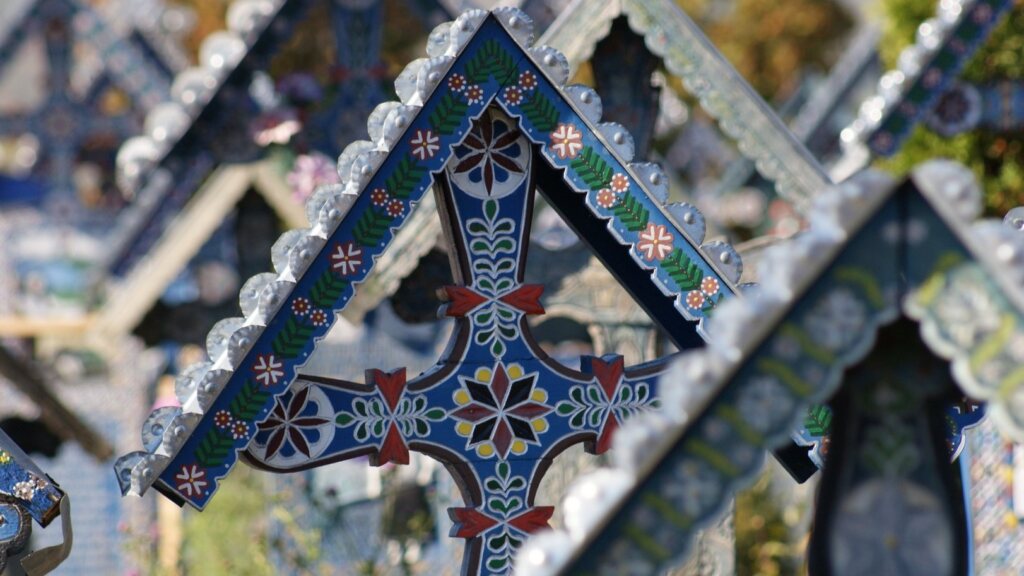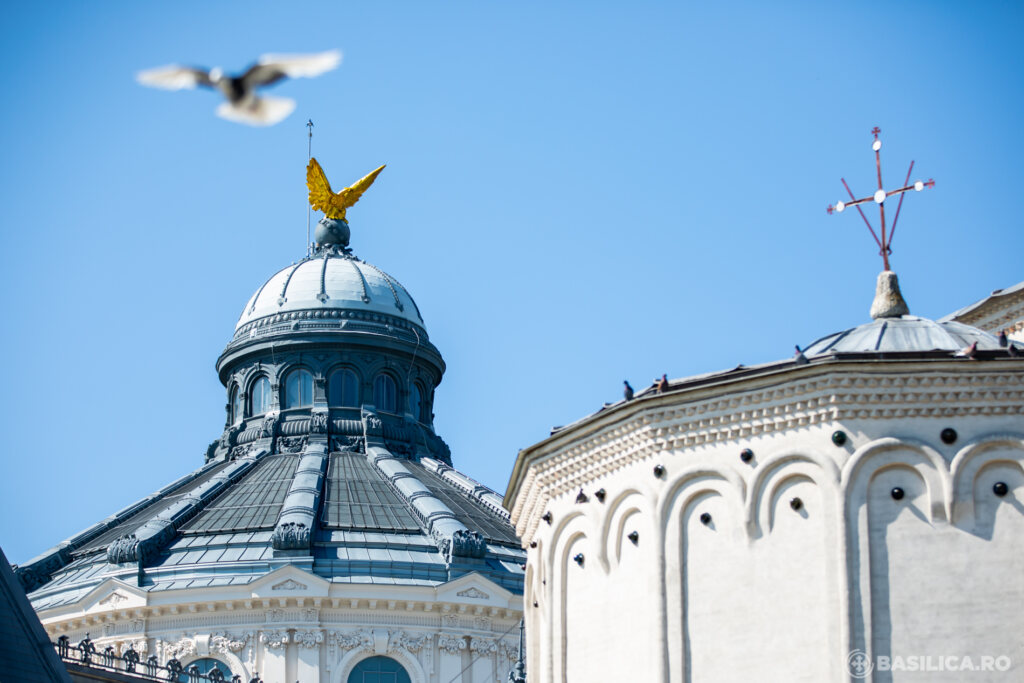Sunday, 3 January 2016, His Beatitude Daniel, Patriarch of Romania, visited the monastic community of Pasărea Monastery, Ilfov county. On this occasion, the Primate of the Romanian Orthodox Church delivered a sermon for all those present at the religious services celebrated in the place of worship of the monastic settlement.
On the Sunday before the Baptism of the Lord, the Orthodox Church scheduled the text of the Gospel according to Mark 1:1-8 to be read during the Divine Liturgy: “The beginning of the gospel of Jesus Christ, the Son of God; As it is written in the prophets, Behold, I send my messenger before your face, which shall prepare your way before thee. The voice of one crying in the wilderness: Prepare the way of the Lord, make his paths straight. John did baptize in the wilderness, and preach the baptism of repentance for the remission of sins. And there went out unto him all the land of Judaea, and they of Jerusalem, and were all baptized of him in the river of Jordan, confessing their sins. And John was clothed with camel’s hair, and with a girdle of a skin about his loins; and he did eat locusts and wild honey; And preached, saying, There comes one mightier than I after me, the latchet of whose shoes I am not worthy to stoop down and unloose. I indeed have baptized you with water: but he shall baptize you with the Holy Spirit”.
The Christian baptism gives the forgiveness of the sins and adoption through grace.
His Beatitude underlined in the sermon delivered on the occasion that the Sunday before the Baptism of the Lord shows us that the Christian Baptism gives forgiveness of the sins and adoption through grace.
”The baptism of John was for repentance as preparatory state for receiving the forgiveness of sins, but the very forgiveness of the sins is given through Christian baptism celebrated in the name of the Father and of the Son and of the Holy Spirit, as Jesus Christ, our Lord, told His disciples when He sent them to preach and baptise all nations:“Therefore go and make disciples of all nations, baptizing them in the name of the Father and of the Son and of the Holy Spirit,and teaching them to obey everything I have commanded you.” Saint Basil the Great says that the baptism of repentance celebrated by Saint John the Baptist is the beginning of the baptism, and the Christian baptism celebrated in the name of the Most Holy Trinity is the completion of the baptism. Therefore, the great difference between the baptism of repentance by John the Baptist and the Christian baptism consists in the fact that the Christian baptism is celebrated in the name of the Most Holy Trinity and establishes a relationship between the human person who is baptised and the divine Persons, the Father, the Son and the Holy Spirit; it is a relationship of love and eternal life, the beginning of our adoption through grace, through the gift of the Holy Spirit received at the baptism and beginning of our resurrection from sin and death”.
Eternal life does not begin after death, but with the Sacrament of the Holy Baptism
The Primate of the Romanian Orthodox Church showed that the Baptism in the name of the Father and of the Son and of the Holy Spirit is our sinking into the love of the Holy Trinity and underlined the fact that heavenly life begins with the Sacrament of the Holy Baptism when we unite with Christ.
“This relationship that the new baptised human being begins with the Father, Son and the Holy Spirit is a relationship of eternal love and eternal life. Thus, eternal life does not begin after death, as wrongly understood sometimes, but with the baptism which unites us with Christ after we denied Satan, all his evil works and servants, and unite with Christ through the holy Baptism. When we unite with Christ, one in the Holy Trinity, we unite with the entire Holy Trinity: Father, Son and Holy Spirit. Thus, we begin a new heavenly life although we are on the earth. The heavenly life begins at the same time with the baptism because we die together with the sinless Christ and resurrect together with Christ when we are baptised through our immersion three times into the water and resurrect for a life of holiness and so we are pleasant to the Most Holy Trinity”, the Patriarch of Romania said.
The Sacrament of Baptism is the foundation of Christian life
The Patriarch of the Romanian Orthodox Church has also spoken about the spiritual preparation of the parents and of the godparents before baptising the infant, showing that they must be in a prayerful condition, to fast and pray.
“The Sacrament of Baptism is the foundation of the Christian life. All the other holy sacraments can be received only if we are baptised, if we have received the Holy Sacrament of Baptism. When we prepare the child to be baptised it is very important both for the biological parents and for the spiritual ones, who are godparents – a family of good Christians – to be spiritually prepared as well. Thus, the father and mother, godfather and godmother should be in a prayerful condition, to fast and pray until the child is baptised in the name of the Most Holy Trinity, in the mystery of the eternal love of Christ for humanity”, the Patriarch of Romania also said.
According to the inscription above the entrance door, Pasărea Monastery was founded in 1813, in the century old forest of Vlăsia, in a place that was “the place of serpents and of other wild beasts, uninhabited by humans because of the thicket around, because nobody has dammed the place where the pond of Pasărea Monastery was”, as Saint Calinic mentioned in one of his writings on the state of the surrounding places at the beginning of the 19th century. The first founder of the monastery of Ilfov area was abbot of Cernica Monastery, archimandrite Timotei. The revolution led by Tudor Vladimirescu in 1821, when the nuns of Pasărea Monastery were robbed and persecuted by the Turkish soldiers, and the earthquake of 11 January 1838, which seriously affected the big church and the outbuildings of the place of worship were two of the times of crisis. In 1846, another abbot of Cernica, who would become Saint Hierarch Calinic later on, decided to begin the construction of the present church, finished in 1847.






